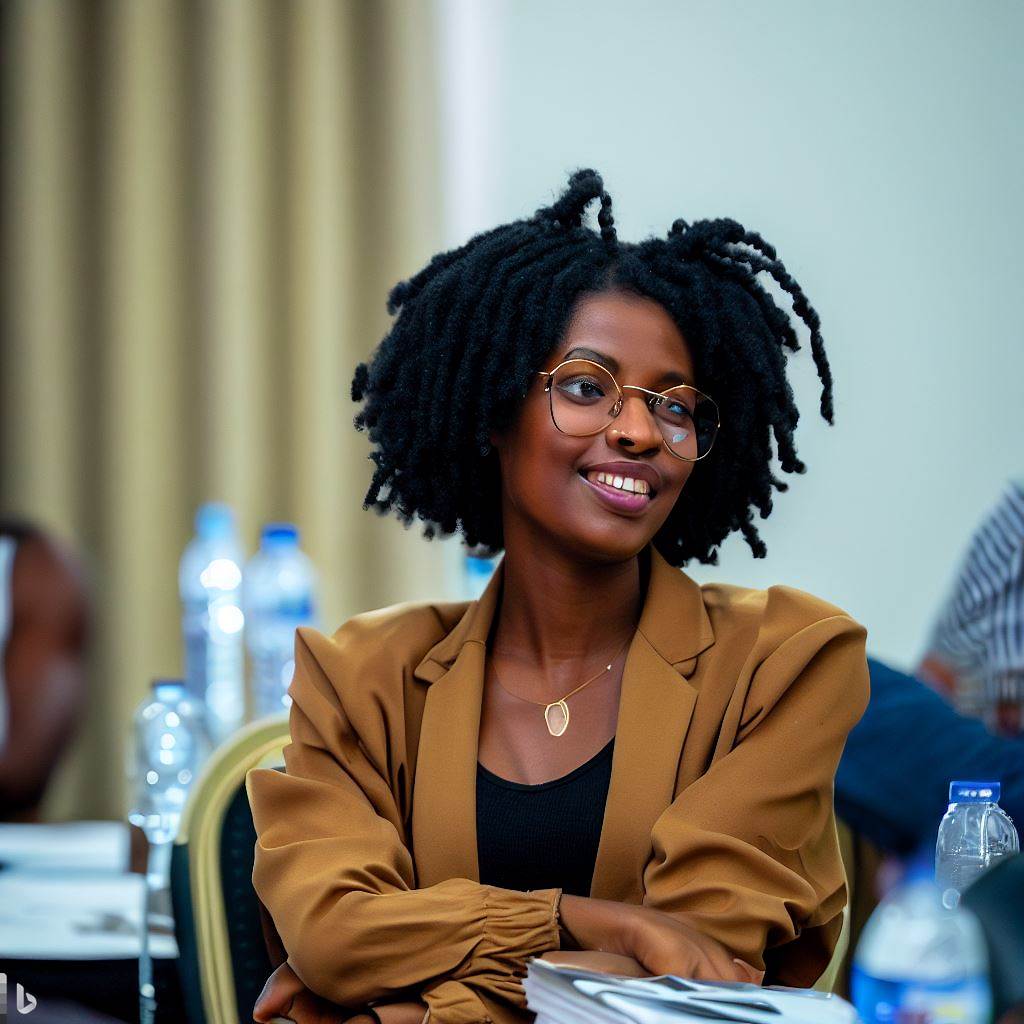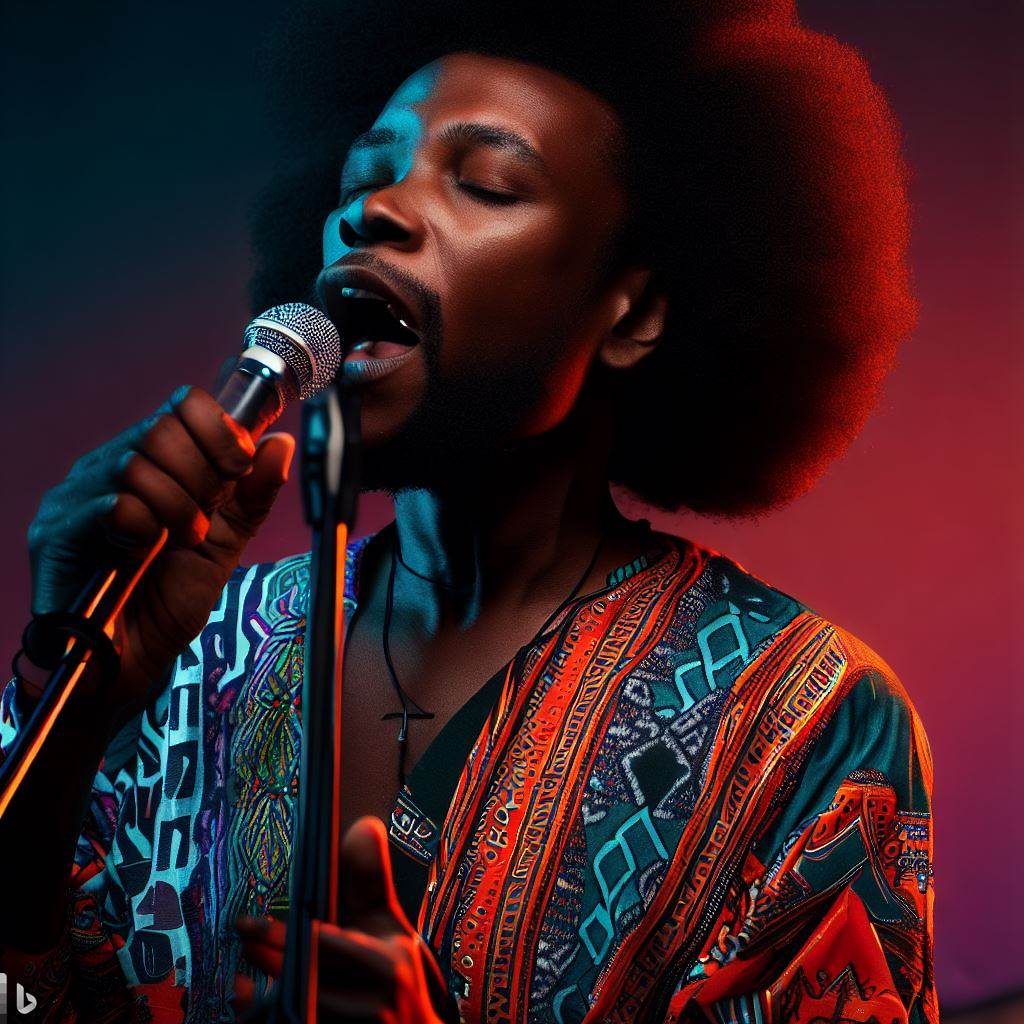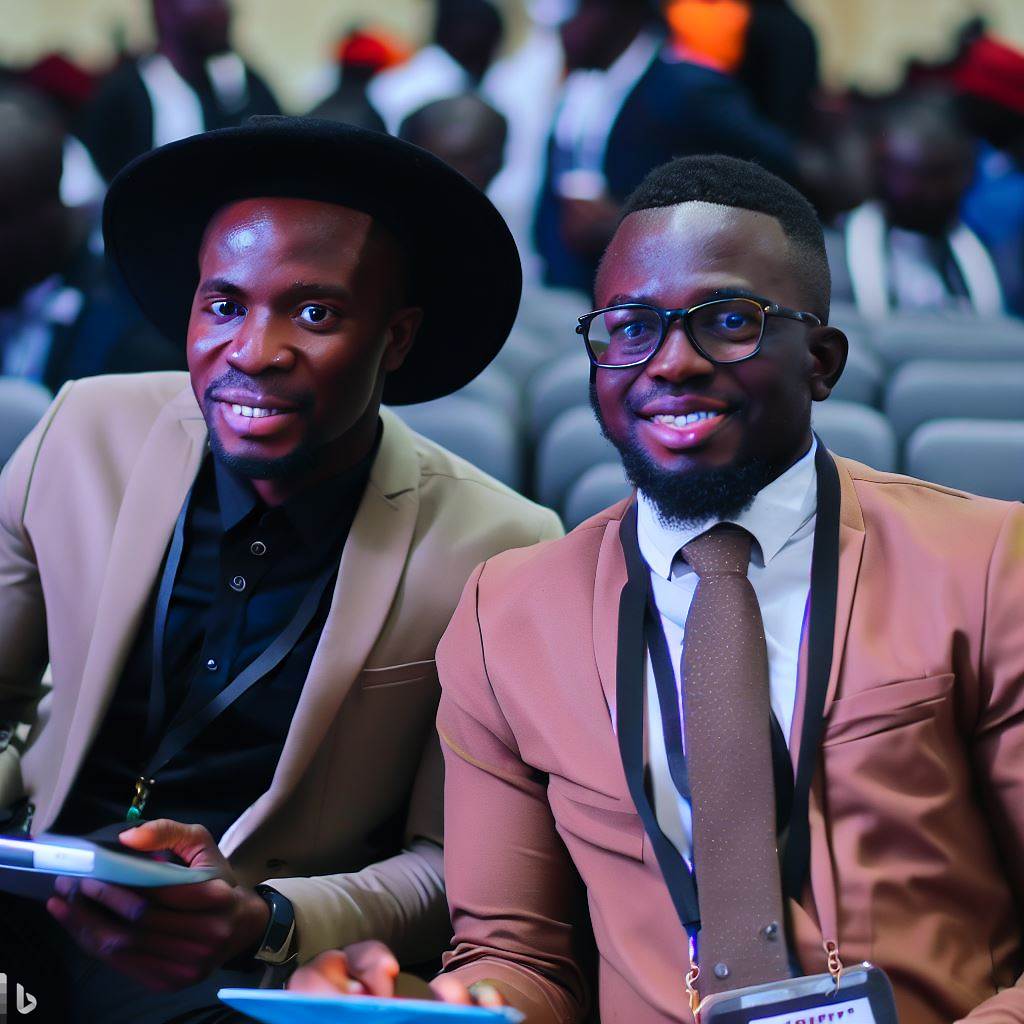Introduction
In Nigeria, artists’ agents play a crucial role in shaping the careers of aspiring and established talents.
This blog explores the legal dimensions of this role, shedding light on its significance in the art industry.
A. Brief explanation of the role of an artist’s agent
An artist’s agent acts as a liaison between the artist and the art world.
They secure exhibitions, manage contracts, and promote the artist’s work.
Understanding the nuances of this role is vital for effective representation.
B. Importance of understanding the legal aspect of being an artist’s agent in Nigeria
Nigeria has a complex legal landscape for artists, including copyright laws, contract regulations, and intellectual property rights.
An agent’s knowledge of these laws safeguards the artist’s interests, ensuring fair compensation and protection from exploitation.
C. Purpose of the blog post
This blog aims to equip artists’ agents with the essential legal knowledge required to navigate the Nigerian art scene successfully.
It will delve into the intricacies of contracts, copyright, and dispute resolution, providing valuable insights for agents
Definition and Responsibilities of an Artist’s Agent
A. Definition Of An Artist’s Agent
An artist’s agent is a professional who represents and manages the career of an artist, negotiating contracts, securing deals, and promoting their work.
B. The responsibilities and tasks performed by an artist’s agent
- Contract negotiation: An artist’s agent is responsible for negotiating contracts on behalf of the artist, ensuring favourable terms and conditions.
- Securing deals: The agent actively seeks opportunities for the artist, such as exhibitions, collaborations, licensing deals, and sponsorship’s.
- Promotion and marketing: The agent develops and implements marketing strategies to enhance the artist’s visibility and attract potential buyers and collectors.
- Financial management: Managing the artist’s finances, including negotiating fees, handling payments, and budgeting for expenses, is a key responsibility of the agent.
- Relationship management: The agent cultivates and maintains relationships with galleries, collectors, curators, and other industry professionals to expand the artist’s network.
- Career guidance and development: Guiding the artist’s career trajectory, the agent provides advice on artistic direction, portfolio development, and potential collaborations.
C. Importance of legal knowledge for an artist’s agent
An artist’s agent must possess a sound understanding of the legal aspects of the art industry to effectively protect the rights and interests of the artist.
- Contractual agreements: By having legal knowledge, the agent can analyse and negotiate contracts, safeguarding the artist’s rights and ensuring fair compensation.
- Intellectual property rights: Understanding copyright, trademarks, and licensing laws enables the agent to protect the artist’s original works from infringement and unauthorised use.
- Dispute resolution: Should any conflicts or disputes arise, the agent with legal knowledge can navigate the complexities of legal proceedings and find resolutions.
- Legal compliance: Being aware of legal requirements, such as tax obligations and art regulations, helps the agent ensure the artist operates within the law.
- Fraud prevention: With legal expertise, the agent can identify potential scams, fraudulent deals, or unethical practices, protecting the artist’s reputation and financial interests.
- Contractual enforcement: If a contract is breached, the agent with legal knowledge can take appropriate legal action to enforce the terms and seek remedies for the artist.
An artist’s agent plays a vital role in managing and advancing the career of an artist.
From negotiating contracts to promoting, managing finances to ensuring legal protection, agents are crucial for Nigerian artists’ success.
Legal Framework Governing Artists’ Agents in Nigeria
In Nigeria, a legal framework guides artists’ agents, outlining rights and duties for both agents and artists.
This section outlines Nigerian laws impacting artists’ agents, emphasising their role and legal implications.
A. Overview of relevant laws and regulations
- The Copyright Act: The Nigerian Copyright Act is the primary legislation that protects copyright owners, including artists, from unauthorised use or reproduction of their works.
Artists’ agents play a crucial role in enforcing these rights on behalf of their clients. - Nigerian Copyright Commission regulations: The Nigerian Copyright Commission (NCC) is responsible for implementing and enforcing copyright laws in Nigeria.
The NCC issues regulations guiding copyright protection, obligating artists’ agents to follow them while representing clients. - Contract laws: In addition to copyright laws, contract laws govern the relationship between artists’ agents and their clients.
These laws govern the formation, interpretation, and enforcement of contracts, including the terms and conditions agreed upon by both parties.
B. Explanation of how these laws impact artists’ agents
- Protection of artists’ intellectual property rights: The Copyright Act and NCC regulations provide artists’ agents with legal tools to protect their clients’ intellectual property rights.
Agents can register copyrights on behalf of artists, enforce these rights against infringers, and pursue legal remedies for unauthorised use or reproduction. - Rules regarding commission and remuneration: Contractual arrangements between artists and their agents often involve commission-based compensation.
Both the Copyright Act and contract laws establish rules and guidelines on commission rates, payment terms, and the agent’s entitlement to remuneration for their services. - Contractual obligations and rights of both parties: Contract laws determine the contractual obligations and rights of artists’ agents and their respective clients.
These laws govern the negotiation, formation, and termination of agency agreements, ensuring that both parties understand their rights and obligations throughout the agent-artist relationship.
The legal framework governing artists’ agents in Nigeria consists of the Copyright Act, Nigerian Copyright Commission regulations, and contract laws.
These laws protect artists’ intellectual property rights, establish rules for commission and remuneration, and define the contractual obligations and rights of artists’ agents and their clients.
Adhering to these laws is essential for artists’ agents to operate legally and effectively represent their clients’ interests.
Read:Behind the Scenes: The Role of an Animation Director
Understanding Intellectual Property Rights
A. Importance of understanding intellectual property rights for artists’ agents
- Artists’ agents must understand intellectual property rights to protect their clients’ work.
- Understanding intellectual property rights helps agents navigate legal issues and avoid infringements.
- Agents can educate artists on the value of their intellectual property and how to monetise it.
- By understanding these rights, agents can negotiate fair contracts and licensing agreements.
B. Different types of intellectual property rights
- Copyright: Protects original artistic expressions, such as music, literature, and visual arts.
- Trademark: Safeguards unique marks, logos, and names that distinguish a brand or artist.
- Patent: Grants exclusive rights to inventors for their inventions, processes, and designs.
C. How to protect and enforce artists’ intellectual property rights in Nigeria
- In Nigeria, artists can protect their work through copyright registration with the Nigerian Copyright Commission.
- Artists should use the © symbol, include copyright notices, and keep records of their creations.
- Artists’ agents can help artists enforce their rights by sending cease and desist letters to infringers.
- In case of infringement, artists can file lawsuits or opt for alternative dispute resolution methods.
- Artists should consider obtaining legal advice from specialised intellectual property lawyers.
Understanding intellectual property rights is crucial for artists’ agents operating in Nigeria.
By being well-versed in these rights, agents can protect their clients’ creations, negotiate favourable deals, and help artists maximise the value of their works.
Read: Essential Skills for a Successful Animation Director

Negotiating and Drafting Contracts
A. Importance of contracts in the artist-agent relationship
In the artist-agent relationship in Nigeria, contracts play a crucial role.
They provide a legal framework that protects the rights and interests of both parties involved.
Contracts help establish clear expectations, obligations, and responsibilities for artists and their agents.
They outline the scope of representation and ensure that both parties understand their roles.
A well-drafted contract helps to prevent misunderstandings, disputes, and potential legal issues that may arise during the course of their professional relationship.
B. Key elements to consider when negotiating and drafting contracts
1. Scope of representation
It is important to define the specific services and responsibilities the agent will undertake on behalf of the artist.
This includes details about promoting the artist’s work, marketing strategies, booking engagements, negotiating contracts, and collecting payments.
2. Commission structure
The commission structure is a fundamental aspect of the contract as it determines how the agent will be compensated for their services.
Artists and agents should negotiate a fair and reasonable commission percentage or fee, taking into consideration industry standards and the artist’s earning potential.
3. Duration of the agreement
The duration of the agreement should be clearly defined.
It specifies the length of the relationship between the artist and the agent.
This time-frame allows both parties to assess their compatibility and decide if they want to renew the contract or part ways after its expiration.
4. Termination clauses
Termination clauses outline the conditions and procedures for ending the contract prematurely.
These clauses should include provisions for termination with cause (such as breach of contract) and termination without cause (allowing either party to end the agreement for any reason).
Clear termination clauses protect the interests of both parties and minimise the potential for disputes.
C. Tips for ensuring legally sound and fair contracts for all parties
- Seek legal advice from a knowledgeable entertainment lawyer to ensure compliance with Nigerian laws and regulations.
- Clearly define all terms and conditions in the contract, using unambiguous language that can be easily understood by all parties involved.
- Include provisions for resolving disputes through arbitration or mediation to avoid costly and time-consuming litigation.
- Ensure that all parties have a clear understanding of their contractual rights, obligations, and potential liabilities.
- Regularly review and update contracts to reflect any changes in the artist-agent relationship or relevant legal requirements.
- Consider the unique circumstances of the artist-agent relationship and tailor the contract to meet their specific needs and goals.
- Keep copies of all signed contracts and related documents in a secure and easily accessible location.
Effective negotiating and drafting of contracts is crucial for artists and their agents in Nigeria.
A well-crafted contract helps establish a strong foundation for a successful and mutually beneficial professional relationship.
Artists and agents, using the mentioned elements and contract tips, confidently navigate the legal landscape, concentrating on artistry.
Read:Emerging Trends in Nigeria’s Animation Industry
Find Out More: Interpreter vs. Translator: Key Differences in Nigeria
Compliance with Tax and Business Regulations
A. Tax Obligations for Artist’s Agents in Nigeria
As an artist’s agent in Nigeria, you have certain tax obligations that must be fulfilled.
These obligations include income tax and Value Added Tax (VAT).
- Income Tax: Artists’ agents are required to pay income tax on the earnings they receive as commissions or fees from their clients.
This tax is calculated based on the agent’s income and must be filed and paid to the relevant tax authorities. - Value Added Tax (VAT): Artists’ agents are also required to collect and remit VAT on certain services they provide.
VAT is a consumption tax imposed on the value added at each stage of production or distribution of goods and services.
B. Registration and Licensing Requirements for Operating as an Artist’s Agent
In addition to tax obligations, artists’ agents in Nigeria must comply with registration and licensing requirements.
These requirements are necessary to legally operate as an agent and provide services to artists.
Registration with the appropriate government agencies, such as the Corporate Affairs Commission (CAC), is essential for establishing a legitimate business entity.
Agents must also obtain the necessary licenses from relevant authorities to operate within the scope of their activities.
Failure to comply with these requirements may result in penalties or even the suspension of an agent’s business operations.
C. Importance of Compliance to Avoid Legal Consequences
Compliance with tax and business regulations is crucial for artists’ agents in Nigeria.
Failure to meet these obligations can lead to serious legal consequences, including financial penalties and legal actions.
In terms of tax obligations, non-compliance may result in audits, fines, or seizure of assets.
The tax authorities in Nigeria closely monitor the income and tax payment of individuals and organisations, including artists’ agents.
It is important to maintain accurate records, track income, and ensure timely filing and payment of taxes to avoid any legal complications.
Similarly, non-compliance with registration and licensing requirements can have severe consequences.
Operating without the necessary registration and licenses exposes artists’ agents to legal liabilities and makes their business operations vulnerable to legal challenges.
Therefore, it is crucial for artists’ agents in Nigeria to prioritize compliance with tax and business regulations.
This involves staying informed about tax laws, seeking professional advice, maintaining accurate records, and fulfilling all registration and licensing requirements.
By meeting their tax and business obligations promptly and accurately, artists’ agents can establish a strong legal foundation for their operations and avoid potential legal issues.
Compliance ensures credibility and trust among artists, clients, and authorities, enabling agents to focus on their core responsibilities of representing and promoting artists’ interests in Nigeria.
Read:A Day in the Life of a Nigerian Animation Director
Dealing with Disputes and Legal Issues
A. Types of disputes commonly faced by artist’s agents
- Contractual disputes: Artists enter into contracts with agents to define their professional relationship.
Disputes can arise when there are disagreements over contract terms, breach of contract, or non-performance by either party. - Intellectual property infringement: Artists invest significant time, effort, and creativity in their work.
Artists’ agents often face disputes related to unauthorised use, reproduction, or distribution of their artist’s intellectual property.
These disputes can be challenging to address without proper legal guidance.
B. Available legal remedies and dispute resolution methods
When facing disputes as an artist’s agent, familiarise yourself with the legal remedies and dispute resolution methods available in Nigeria.
Some of these remedies and methods include:
- Negotiation and mediation: These alternative dispute resolution methods can help parties reach a mutually agreeable solution without resorting to litigation.
Mediation, in particular, involves a neutral third party facilitating negotiations between the artist and any infringing party. - Legal actions and litigation: In cases where negotiation or mediation fails, legal actions may become necessary. Artist’s agents can file lawsuits seeking remedies such as injunctions, damages, and accounting.
- Intellectual property protection: Understanding intellectual property laws is crucial for artist’s agents. Registering artistic works for copyright protection, trademarks, or patents can provide legal remedies and deterrents against infringement.
C. Importance of seeking legal advice when facing legal issues
Navigating legal issues can be complex and overwhelming, especially for artist’s agents who may not have specialised legal knowledge.
Seeking legal advice from a qualified attorney experienced in entertainment and intellectual property law is essential when faced with contractual disputes or intellectual property infringement.
Attorneys guide contract talks, review and draft agreements, assess legal claim viability, and ensure adherence to intellectual property laws.
Their expertise can help protect the artist’s interests and safeguard the agent’s reputation and business.
Being an artist’s agent in Nigeria involves dealing with various disputes and legal issues.
Understanding the common types of disputes, available legal remedies, and dispute resolution methods is essential for effectively representing artists.
Conclusion
A. Main points discussed in the blog post
In this blog post, we discussed the main points regarding the legal aspect of being an artist’s agent in Nigeria.
B. Understanding The Legal Aspect Of Being An Artist’s Agent In Nigeria
Understanding the legal aspect is crucial as it protects both the agent and the artist, ensuring a smooth and successful working relationship.
C. Professional Legal Guidance
It is highly encouraged to seek professional legal guidance when necessary to navigate the complexities of the Nigerian art industry effectively.




